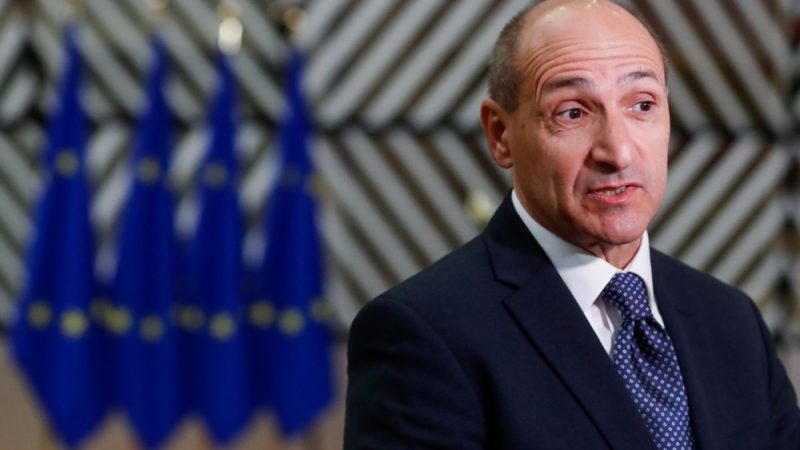Maltese Deputy Prime Minister, Minister of European Funds and Labour Party (PES) candidate for European Commissioner following June elections Chris Fearne could face charges related to the controversial hospitals deal, which has also implicated former prime minister Joseph Muscat, his former chief of staff Keith Schembri, and former tourism minister Konrad Mizzi, according to Euractiv.
Fearne, in a Facebook post, said he had no information on what charges he was likely to face but insisted on his innocence.
“I have no doubt there will be the same conclusions this time around. I have never broken any law or ministerial ethics,” Fearne wrote.
He told party members he would step back if needed, but Prime Minister Robert Abela and his deputies have backed him, with the latter stating it is him, not a magistrate, that decides who resigns.
Fearne was minister of health from 2019 onwards after Mizzi resigned from the position in the aftermath of the assassination of Daphne Caruana Galizia and multiple corruption allegations.
The former health minister was nominated by the Maltese government to be a European commissioner, a post he would only be able to assume following approval from the European Parliament and intense questioning by MEPs.
Opposition politician and MEP David Casa said it is time for Malta to find a plan B.
“He needn’t come at all [to the parliamentary grilling]. We don’t even need to wait for the conclusions of the inquiry. Already on the basis of what we know now, Fearne’s place is not in the EU Commission, and the Labour Party should start their search for a plan B.”
The results of a magisterial inquiry into the Vitals/Steward deal have caused waves in Maltese politics, just weeks ahead of the European elections.
The deal saw a lucrative hospital management concession handed to a group of investors with no experience in the sector in 2015, two years after the Labour Party came to power.
The concessionaire, Vitals Global Healthcare, did not deliver on a single part of the agreement before selling to Steward Global Healthcare, which is linked to the US hospital giant.
This deal did not deliver either, and Steward left the country owing millions in tax and with multiple court cases from vendors pending, despite having taken hundreds of millions of euros in taxpayer funds.
In late 2023, a court found the deal appeared “fraudulent” and that there had been “collusion between Steward and senior government officials or its agencies.”
While the findings of the magisterial inquiry have not yet been made public, it is believed that, aside from his involvement in the fraudulent deal, Muscat may have received over half a million euros in kickbacks.
But the scandal has done little to diminish Muscat’s popularity at home, with most of the party rallying around him while attacking the judiciary and magistrates’ findings.
Muscat resigned in December 2019 after weeks of nationwide protests following revelations of his links to Yorgen Fenech, the man currently on trial for masterminding the assassination of journalist Daphne Caruana Galizia. He was then designated Corrupt Person of the Year 2019 by the Organised Crime and Corruption Reporting Project (OCCRP).
He was replaced by current Prime Minister Robert Abela, who has also attacked the work of the inquiry and the judiciary. He claims it was timed to coincide with the European Elections on 8 June. This is despite the fact the inquiry was requested four years ago, and Caruana Galzia sounded the alarm over the deal back in 2015, two years before she was murdered.
He said “the establishment,” which works “in the background” and “does not forget or forgive and that believes that they have a divine right to rule,” is behind the results. He said it is up to the electorate to decide whether to allow “the establishment to steal the sovereignty of the leadership of the country.”
A source close to civil society told Euractiv that Muscat has been attacking the magistrate who handled the inquiry for “years”.
The Muscat, Mizzi, and Schembri trio are also implicated in another scandal that is under investigation—the Electrogas scandal, which a Parliamentary Committee of the Council of Europe inquiry dubbed “sinister.”
In 2013, a major public contract was awarded to a consortium of companies, including Electrogas and Azerbaijan’s state energy company SOCAR. Under the deal’s terms, Maltese taxpayers were locked into paying double the going rate for LNG from SOCAR for ten years.
Electrogas’ previous director was Yorgen Fenech, the man in custody charged with masterminding the assassination of Daphne Caruana Galizia, and he and his family members still own key stakes in the company.
Further investigations showed that through a shell company called 17 Black, Fenech would pay €150,000 a month to Panamanian companies owned by Mizzi and Schembri.
Meanwhile, the EU is considering funding into the Melita TransGas Hydrogen Pipeline, which runs between Malta and Sicily and is powered by LNG.
Under the terms of the deal, Fenech would receive millions of euros in compensation because the gas used by the plant would come from a different source.
Muscat maintains his innocence in this scandal despite misleading the European Commission about the details of the deal, while the Commission maintains that it will not fund projects linked to crime or corruption but stops short of removing the project from its list of possible projects.









